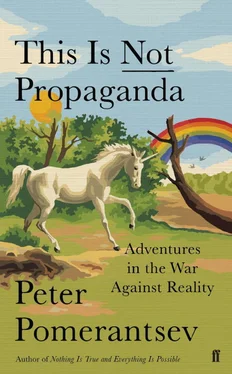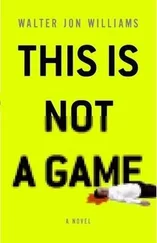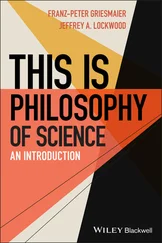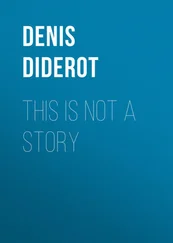Information, in this world view, precedes essence. First you have an information warfare aim, then you create an ideology to fit it. Whether the ideology is right or wrong is irrelevant; it just needs to serve a tactical function. Instead of clashing ideas leading to a cold war, here information war necessitates the creation of ideologies.
Indeed, it’s not hard to find many instances where the US acted, as Ashmanov argues, hypocritically when it came to freedom and human rights, supporting their promotion in adversaries and ignoring their violation in allies. In the sly words of diplomats, values and interests don’t always align. On the other hand, аs long as the US kept up the facade of believing in something when promoting its image abroad, it would have to at least sometimes do something about it.
As the Oxford University professor Rosemary Foot relates, you can trace the roots of the American foreign policy freedom narrative back to President Franklin Delano Roosevelt’s 1941 ‘Four Freedoms’ speech, which called for freedom of speech and religion and freedom from fear and want as the basis for a democratic world. Proclaiming the message so loudly meant that policy and practice needed to at least vaguely match promises.
As early as 1949 the ‘Negro question’ had been highlighted by the US embassy in Moscow as a ‘principal Soviet propaganda theme’, one which had to be battled at home for the sake of US foreign policy. [7]During the 1950s the US Justice Department could argue that desegregation inside the US was important as it would help promote the country’s international image as a bastion of freedom. In the early 1970s, in the aftermath of the Vietnam War, American support for coups in Chile and US intervention in the Dominican Republic, Congress held hearings on human rights abuses in those countries. The resulting report established a human rights bureau within the State Department, meant to make rhetoric on freedom and human rights closer to policy.
Meanwhile, inside the Soviet Union dissidents could use the Helsinki Accords to insist that the regime ‘obey their own laws’, in an attempt to at least embarrass them internationally.
These were tiny victories in the grand scheme of the horrors of the Cold War, but the notion of information war as defining history demolishes even these achievements and replaces hypocrisy not with something better but with a world in which there are no values. In this vision all information becomes, as it is for military thinkers, merely a means to undermine an enemy, a tool to disrupt, delay, confuse, subvert. There is no room for arguments; ideals are in and of themselves irrelevant.
This leaves one with a tricky situation. In Don’t Think of an Elephant the cognitive linguist George Lakoff defines winning and losing in politics as being about framing issues in a way conducive to your aims. Defining the argument means winning it. If you tell someone not to think of an elephant, they will end up thinking of an elephant. ‘When we negate a frame, we evoke the frame… when you are arguing against the other side, do not use their language. Their language picks out a frame – and it won’t be the frame you want.’ [8]
I had already seen this in the Philippines, where the Rapplers had indulged Duterte’s language of a ‘war on drugs’, thus making it easier for him to start his actual killing. The heads of Russia’s international broadcasters, RT and Sputnik, indulge in the language of information war, even receiving military medals for their services to the government. [9]Western journalists and analysts, myself included, then call them out for being information war organs. But by describing them as such is one actually lending them a hand, framing them in the image that they need to secure more funding from a regime that wants to see everything through the frame of information war? By evoking the Kremlin’s language of information war, does one end up strengthening it? Do the endless articles, senate hearings and think tank events with their sour coffee – I have written for and attended plenty – risk reinforcing the notion even as they try to expose it?
The long-term implications go deeper. If all information is seen as part of a war, out go any dreams of a global information space where ideas flow freely, bolstering deliberative democracy. Instead, the best future one can hope for is an ‘information peace’, in which each side respects the other’s ‘information sovereignty’: a favoured concept of both Beijing and Moscow, and essentially a cover for enforcing censorship.
But to merely ignore the Kremlin’s information operations would be foolish. The disabling of Estonia with a mix of media and hacking in 2007 had been a foretaste of how strong their effect could be. In Ukraine they had accompanied an actual invasion.
At endless panels held in think tanks in Washington DC, London and Brussels military theorists, journalists and officials have tried to make sense of the Russian approach to ‘war’ and international conflict. Some call it ‘full-spectrum warfare’, others ‘non-linear war’, yet others ‘ambiguous’ and ‘grey-zone warfare’. [10]In Eastern Europe ‘hybrid war’ state research centres have sprung up, where ‘hybrid’ seems to be a diplomatic way of not saying ‘Russian’.
There are some things that a few experts can at least occasionally agree on. First, that the Russian approach smudges the borders between war and peace, resulting in a state of permanent conflict that is neither fully on nor fully off. And in this conflict information campaigns play a remarkably important role. Summarising the aims of Russian ‘next-generation warfare’, Jānis Bērziņš of the Latvian Military Academy describes a shift from direct annihilation of the opponent to its inner decay; from a war with conventional forces to irregular groupings; from direct clash to contactless war; from the physical environment to the human consciousness; from war in a defined period of time to a state of permanent war as the natural condition in national life. [11]
This leaves us with a paradox. On the one hand, it is necessary to recognise and reveal the way the Kremlin, with a military mindset, uses information to confuse, dismay, divide and delay. On the other, one risks reinforcing the Kremlin’s world view in the very act of responding to it.
It is in Ukraine where this paradox plays out at its most intense. This is where the Kremlin’s next-generation warfare is being tried out, but also where it is trying to spread an all-encompassing world view of information war.
So how can one win an information war when the most dangerous part could be the idea of information war itself?
The Most Amazing Information Warfare Blitzkrieg in History
Of all the things one might think Tetyana could ever be, a soldier is not one of them. But back in early 2014, at the height of Ukraine’s revolution against a pro-Moscow president, Tetyana suddenly found herself able to command life and death. Sitting in her father’s apartment, in her pyjamas, she had her hand over a keyboard, knowing that if she pressed one key she might send many very real people to a very real death, and if she pressed another the revolution and all that she, her friends and thousands of others had fought for might be lost.
At the time Tetyana was running the Facebook page of Hromadske Sektor (the Civic Sector), one of the main opposition groups in the Ukrainian revolution against President Viktor Yanukovich and his backers in the Kremlin. She posted photos and videos that were straight out of Srdja Popović’s philosophy of non-violent action: a protester playing a piano out on the street while facing a row of riot police; photos of protesters holding mirrors up to the security forces; a drawing of a cop duelling with a protester, with the cop holding a gun and the protester ‘shooting’ with a Facebook sign, emblematic of how empowering social media was for the protesters. Online activists could organise everything from medical help to legal aid, coordinating million-strong protests and raising funds from Ukrainians abroad for food and shelter.
Читать дальше












